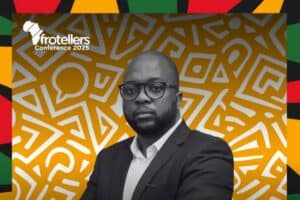In her new book, Chaeli Mycroft reveals her innermost thoughts, of not only living with disability, but doing so unashamedly.

No stranger to challenging misconceptions, 27-year-old Chaeli Mycroft has already made history by summiting Mount Kilimanjaro, being the first athlete in a wheelchair to complete the Comrades Marathon, winning the International Children’s Peace Prize, founding the Chaeli Campaign to champion a more ability-focused and inclusive world.
In her new book Unapologetically Able, Chaeli reveals her thoughts, fears, questions, crazy experiences and the profound lessons she’s learnt along the way living not only with disability, but learning how to do so unashamedly.
In this book extract, she reveals what it’s like to live with her disability and her daily thoughts
“If you’re wondering about how I would do something, I probably need some sort of assistance to get that done. I can’t do a lot of things but I’ve learnt that doing that stuff on my own is not the most important thing in my life. There is a way to be honest about what doesn’t work for me because of my disability, and still have a positive outlook on life. It’s okay to have help. I can use the energy elsewhere.
I’m very much on board with doing things efficiently, even though this may seem like a contradiction when things can take decades longer than they would take a non-disabled person to do. This is where efficiency involves me having help with stuff. I can appreciate that sometimes it’s good to find ways to do things for myself, and sometimes I need to delegate to save energy to do the things I’ve prioritised for that specific day.
My life is full (in both a scheduling sense and a feeling fulfilled sense). So no need to assume my disability has somehow left me an empty shell of a person who longs for all the things able-bodied, non-disabled living brings. We don’t need that kind of energy around here. I think we still have so much work to do to combat the perceptions and stigma around disability. Too often disabled people are positioned as always needing or receiving help, resources, whatever; we need to change this narrative to look at disabled people not only as recipients but also as people capable of giving to and supporting others.
It’s in the small things that my disability shows itself. I don’t really think about it because it’s my norm; my standard day. I live through the same number of hours as everyone else – I’m just using wheels and doing everything sitting, and I have a logistical plan for everything and three backup plans for any logistical plan.
Whenever we go anywhere, I’m always the first person to get into the car and the last to get out. Whoever is driving has to get my wheelchair into the vehicle, and if there’s a group of us going, the others will be helping with that.
I can tell you the boot space for most car types relative to how much of a mission it is to get a wheelchair into the boot – this is how we judge the quality of a car. Since I was about 10 years old, I’ve wanted to get a car that I can drive and therefore be independent. Getting a car would be incredible because it would mean that I could rely on myself to get around and I wouldn’t be so dependent on other people, at least in a transport sense. It would also mean that people could rely on me for something, and that would be a great change of dynamic.
A while ago I was sitting in the car in a parking lot with my cousin Dylan, waiting for Mom to come out of a shop, and a guy parked his car in the row in front of us, got out of it and was inside the shop, all in less than 15 seconds. It was amazing to me just how easily he did all of those things; the way he probably didn’t even think about the 12 things he had just done successfully to reach the shop. I didn’t feel jealous. It was more a sense of awe at how quickly people can do stuff. Everything I do takes time, thought and planning.
I’m a planner, a pro-strategist, if you will. I think ahead by accident. Or maybe it’s by design. Or just out of necessity. Spontaneity is hard for me, practically and emotionally. I like knowing what is happening, what’s going to happen and what could happen, so that I am prepared for whatever eventuality. It can be exhausting and can make for some pretty full (and sometimes heavy) bags if you try to carry them all on your own.”

About Chaeli Mycroft
“I’ve wanted to write this book for years,” says Chaeli. “But really doing it takes a different kind of courage and tenacity, and in some ways, it’s scarier and more daunting than climbing Mount Kilimanjaro! Through it, though, I’ve reached an even deeper level of self acceptance… and that’s the key thing I hope everyone that reads my book takes with them.”
Born in 1994 with cerebral palsy, Chaeli has achieved some near-impossible feats.
Her barrier-breaking account of not only living with disability, but also learning how to do so unashamedly, brings readers along on a journey of collective self-discovery and acceptance – whether they are disabled or not.
“I’ve tried to reveal my life and its lessons in all their complexity and range – from very intense moments and questions, to my grappling with the theoretical understanding of disability discourse, to some hilarious encounters and crazy stories – it’s a rollercoaster of emotions, which is actually a pretty accurate description of my life thus far,” reflects Chaeli.
Compiled by Farrah Saville






